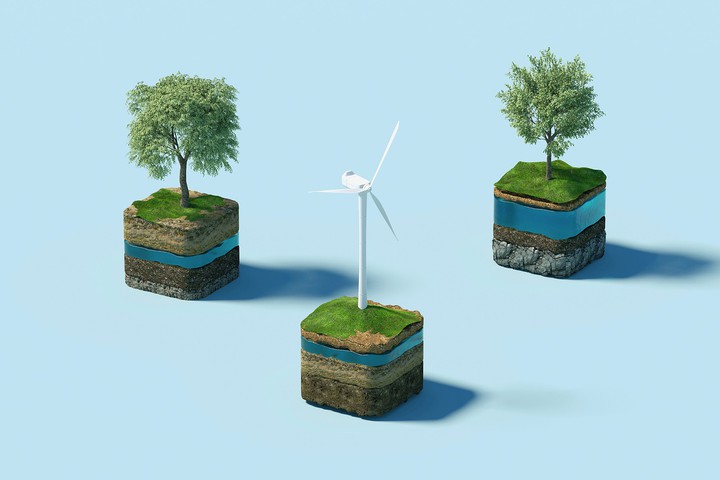
Sustainability – Possibly the Most Pressing Issue Ever to Face Humanity
What are the benefits of crowdsourcing and how can using an innovation framework for tackling sustainability issues lead to better solutions?
The drive for sustainability is gathering momentum around the world and progress is being made through traditional government, business and individual efforts, but some of the most exciting and far-reaching progress has been made through crowdsourcing and prize challenges.
Sustainability - measures that ensure human civilization coexists with Earth’s biosphere at a level that allows economic viability and social equity while simultaneously protecting the environment. This is often described as the three pillars of sustainability.
As a means of progressing towards these three pillars, the UN has also published Sustainable Development Goals (SDGs). The importance of these SDGs is clear as Earth’s environment is in crisis and immediate action is required if human civilization is to survive as we know it. While there is disagreement on the severity of outcomes, there is broad consensus that our activity is currently unsustainable.
Traditional Methods for Tackling Sustainability
Reduction of consumption and technology are the main methods for achieving sustainability. Historically, this has been left to governments, international bodies and wealthy corporations but these organizations have often been slow and, in some cases, unwilling to act, although there are some notable exceptions. Short electoral cycles, conflicting interests and profit margins are all factors at play. However, at the individual, small business and community level there have been some great successes and momentum here is growing daily.
There are numerous cases worthy of note. Take accessible solar power for example. From individual items such as Barefoot lamps, through to micro and mini grids, solar power is transforming lives while simultaneously reducing emissions and deforestation.
Another example is fungi-based packaging that makes use of agricultural waste to replace wasteful and polluting plastics, cardboard and metals. Evocative is a design company that emerged from a university project and now produces a range of sustainable packaging and construction products.
Technology that reduces consumption, protects the environment and even repairs the damage we have already inflicted is developing rapidly although on a global scale implementation is stove-piped and patchy. Renewable energy, waste management, conservation, carbon capture, and low impact agriculture are all important areas that require broad collaboration to deliver the rapid change required. However, governments, corporations and even large international bodies often find it difficult to work together quickly and efficiently.
The most promising answer to this conundrum may very well lay in crowdsourcing through the use of prize challenges, innovation portals and open innovation platforms. It is the creation of a collaborative network between the millions of individuals and groups with expertise and interest in sustainability. This can assist governments and corporations by providing them with access to a global pool of sharp minds, experts and innovators that would be unobtainable if traditional methodologies were used. Most importantly, it allows instant access to innovative ideas and expert knowledge from across the network and creates incentives for quick delivery of projects that would otherwise remain on the drawing board.
Climate Pledges – Part of the Solution but not the Answer
Climate pledges can also help with the transition to sustainability. Some of the most famous people making climate pledges include Elon Musk, Bill Gates and Jeff Bezos. But it is not just the purview of the rich as the Pledge 1% movement shows. Although the half trillion-dollar fortunes of Musk, Gates and Bezos will not fix the Earth, climate pledges work well with crowdsourcing and prize challenges as they can provide lucrative purses that attract the brightest and best solvers and ‘dream teams’ made up of global experts.
Prize Challenges for Sustainability - Leading the Way
Sustainability needs to become a way of life and something that should drive individual, community, national, corporate and international behaviours. This is where the power of the crowd and prize challenges have a major role to play, and they link seamlessly with all the other methods mentioned above. Moreover, they can tackle a large number of areas collectively while also enabling an innovation framework for ‘moon shot’ breakthroughs.
Forward looking corporations are already embracing crowdsourcing and prize challenges. Boeing, Unilever, Samsung, Starbucks and NASA are just a few examples. Crowdsourcing has already delivered some stunning successes for these and other companies. Take the new more efficient wings on the Boeing 787 Dreamliner, or Unilever’s low impact waterfall shower design, both the result of crowdsourcing.
While ‘megaprojects’ by governments and multi-billion-dollar corporations have their part to play, so too do cheaper projects distributed on a large scale. We should never underestimate the profound impact of small changes and behavioural psychology. If several million people can be helped or nudged to make a small positive change, the outcomes can be incredible. The Clean Cooking Alliance is an excellent example of this. Through education, collaboration and the provision of cheap but clean stoves to 100 million low income households over a five-year period, some 1.9 billion trees have been saved, 1.6 billion tonnes of carbon emissions stopped, and 640,000 early deaths prevented.
The most promising answer to this conundrum may very well lay in crowdsourcing through the use of prize challenges, innovation portals and open innovation platforms. It is the creation of a collaborative network between the millions of individuals and groups with expertise and interest in sustainability. This can assist governments and corporations by providing them with access to a global pool of sharp minds, experts and innovators that would be unobtainable if traditional methodologies were used. Most importantly, it allows instant access to innovative ideas and expert knowledge from across the network and creates incentives for quick delivery of projects that would otherwise remain on the drawing board.
Share your ideas - launch or join a challenge on HeroX.com.
Not sure where to start? - Contact the HeroX Team
Listen: CROWD//SESSIONS: Crowdsourced Innovation & Prize Challenges for Sustainability








